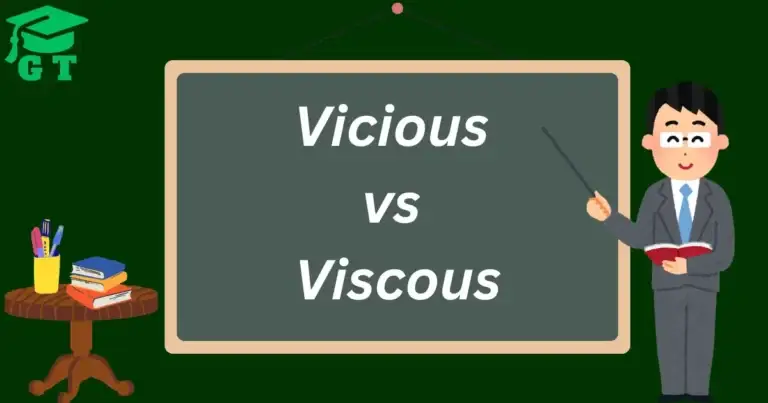Have you ever hesitated before using “than” or “then” in a sentence? You’re not alone! The than vs then confusion is one of the most common grammar mistakes in English. These two words look and sound similar, but they have very different meanings and uses. Understanding their differences is key to writing clearly and correctly.
In this article, we will explore the meaning and proper usage of “than” and “then.” You’ll learn simple definitions, see real-life examples, and discover useful tips to avoid common mistakes. By the end, you’ll have a solid grasp of when to use “than” and when to use “then” in your writing!
Than vs Then – What’s the Difference?

The primary difference between “than” and “then” lies in their grammatical roles and meanings, which are often confused due to their similar spelling and pronunciation.
- “Than” is used for comparisons, showing differences between two or more things.
- “Then” refers to time or sequence, indicating what happens next in a series of events.
Many people mistakenly swap these words, leading to unclear or incorrect sentences. This confusion is common in both writing and speech. However, by recognizing their distinct functions and following simple rules, you can easily avoid this mistake and improve your grammar. Understanding these differences will enhance the clarity and accuracy of your communication, whether you’re writing casually or professionally.
What Is “Than”?
Definition:
“Than” is a conjunction used to introduce comparisons between two elements.
Usage in Sentences:
- She is taller than her brother.
- I would rather walk than take the bus.
- Other than the weather, our trip was perfect.
Contextual Usage:
- Used in comparisons: “Apples are sweeter than oranges.”
- Common in mathematical or statistical contexts: “5 is greater than 3.”
- Frequently used in formal and informal writing.
Common Mistakes with “Than”
| Incorrect Sentence | Corrected Sentence |
| I like pizza more then burgers. | I like pizza more than burgers. |
| She is older then me. | She is older than me. |
Read More: Trailer or Trailor? Learn the Right Spelling & Meaning Now!
What Is “Then”?
Definition:
“Then” is an adverb that refers to a point in time or a sequence of events.
Usage in Sentences:
- We went to the park, and then we had lunch.
- If you study hard, then you will pass the exam.
- Back then, life was simpler.
Contextual Usage:
- Indicates a chronological sequence: “She finished her homework, then watched TV.”
- Used in cause-and-effect situations: “If you are hungry, then eat something.”
- Common in storytelling and historical references.
Common Mistakes with “Then”
| Incorrect Sentence | Corrected Sentence |
| She is better then him at math. | She is better than him at math. |
| If you don’t hurry, than we will be late. | If you don’t hurry, then we will be late. |
Key Differences Between “Than” and “Then”

| Aspect | Than | Then |
| Definition | Used for comparisons | Refers to time or sequence |
| Common Usage | “Better than,” “taller than” | “Back then,” “and then” |
| Context | Comparisons and preferences | Sequence of events and conditions |
| Grammar Role | Conjunction | Adverb |
| Common Mistakes | “Rather then” (incorrect) | “Other than that, we left” (incorrect) |
Example Scenarios to Illustrate the Difference
- Comparison (Than):
- She is more experienced than her colleague.
- I prefer tea than coffee.
- Sequence (Then):
- We had dinner, then went to the movies.
- He studied for hours, then took a break.
Why Do People Confuse “Than” and “Then”?
- Similar spelling and pronunciation – Both words look and sound alike, making them easy to mix up.
- Autocorrect errors – Some spell checkers may not catch incorrect usage.
- Lack of emphasis in learning – Grammar rules for these words are not always reinforced in school.
Synonyms & Antonyms
| Word | Synonyms | Antonyms |
| Than | Compared to, in contrast to | Similarly, equally |
| Then | At that time, next, afterward | Now, before |
Practical Tips for Remembering “Than” and “Then”
- Tip #1: Test for Comparisons – If the sentence involves a comparison, use “than.” (Example: “This book is better than that one.”)
- Tip #2: Test for Time or Sequence – If it refers to time or order, use “then.” (Example: “First, I brushed my teeth, then I went to bed.”)
- Tip #3: The “E” in “Then” Stands for “Event” – If the sentence talks about an event happening, use “then.”
- Tip #4: The “A” in “Than” Stands for “A Comparison” – If something is being compared, use “than.”
Commonly Confused Phrases with “Than” and “Then”
| Phrase | Correct Usage |
| Rather then or than? | Rather than |
| Other than or then? | Other than |
| More then or than? | More than |
| First than or then? | First then |
Read More: Plural of Journey: Is It Journeys or Journies? Find Out Now!
Final Thoughts
Mastering the difference between “than” and “then” is a small but significant step toward clearer communication. By understanding that “than” is strictly used for comparisons and “then” is used for time or sequence, you can avoid common grammatical errors that may confuse your readers. Whether you’re writing an academic paper, a casual text, or a professional email, using the correct word enhances both clarity and credibility.
Next time you’re unsure, simply ask yourself: Am I comparing two things? If yes, use “than.” Am I talking about time or what happens next? If so, use “then.” With practice, distinguishing between these two words will become second nature. Keep these simple rules in mind, and your writing will be more polished and precise!




